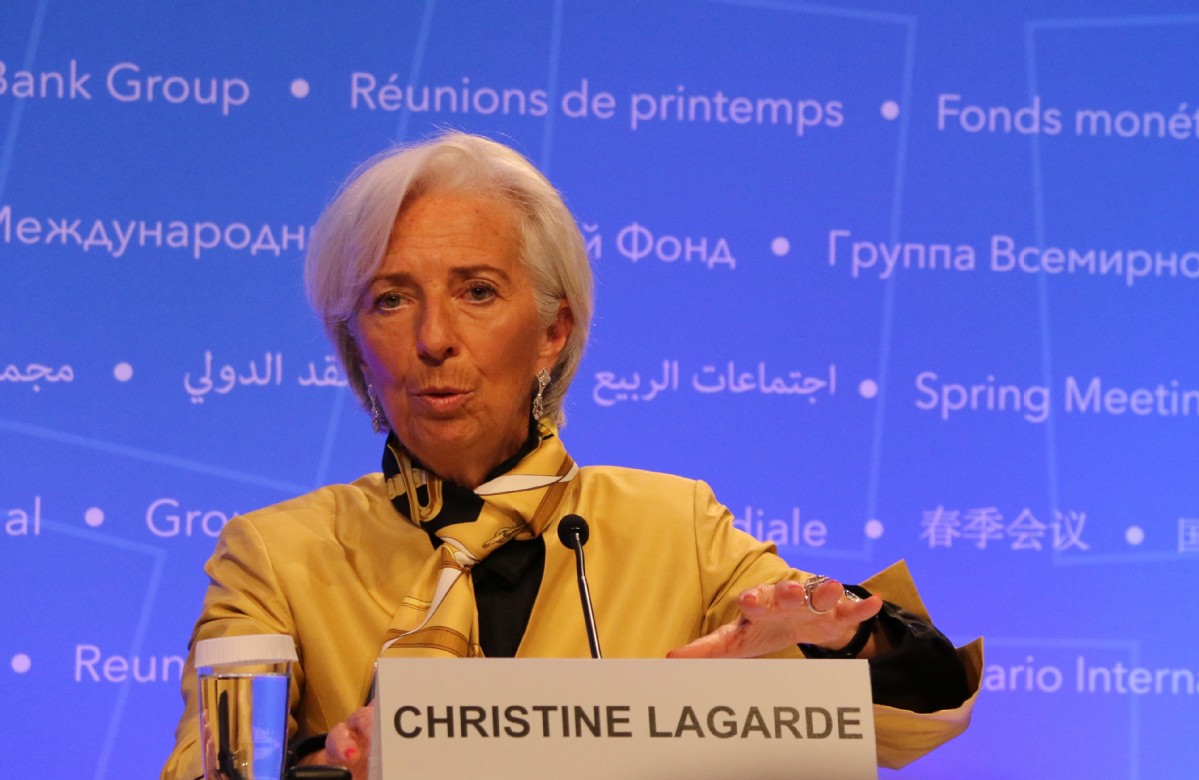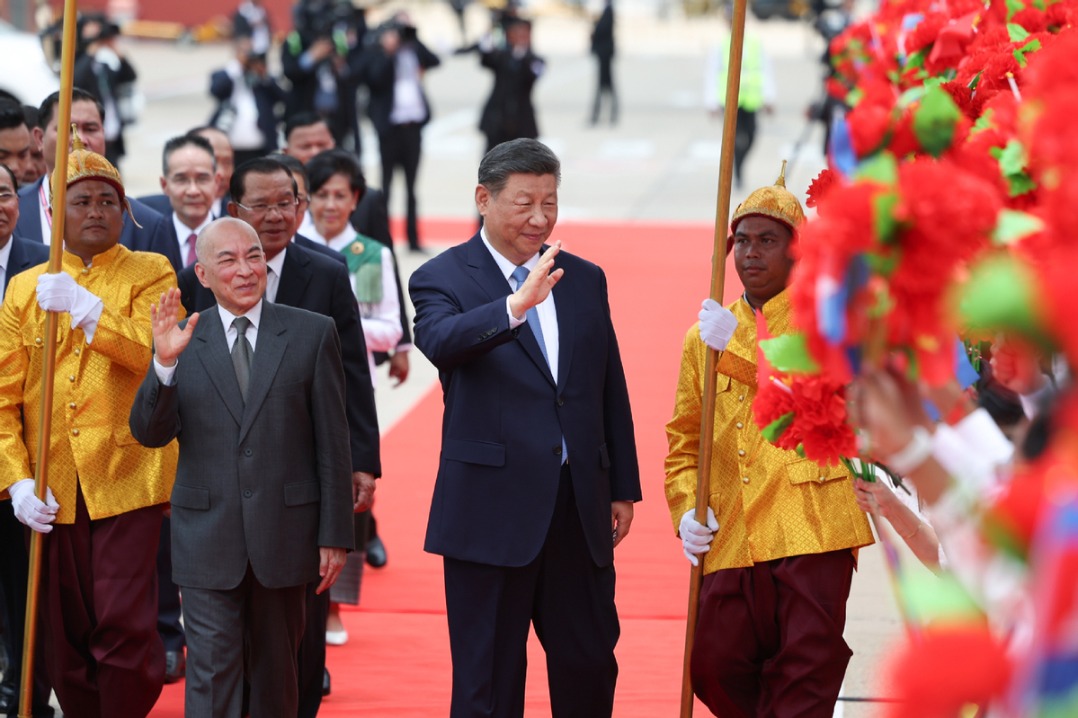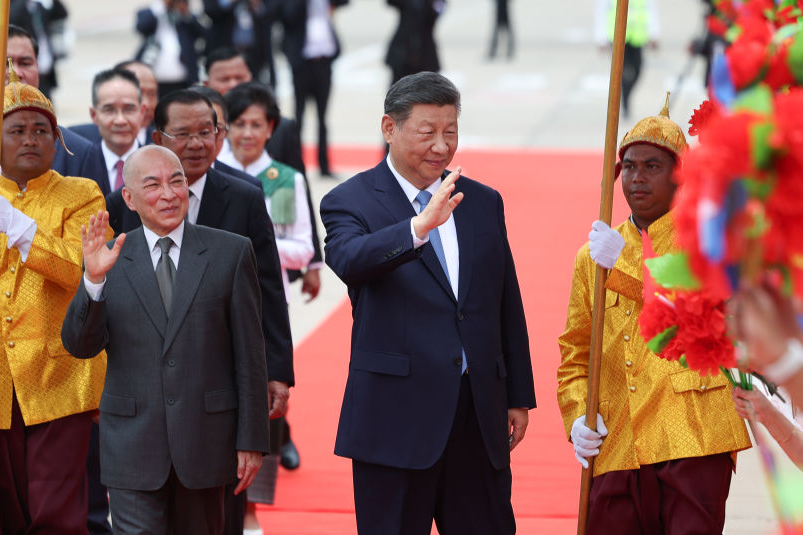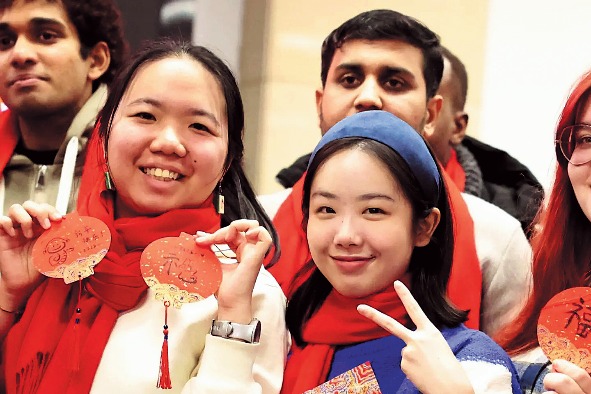Lagarde warns of erosion of confidence from trade tensions
By CHEN WEIHUA in Washington | China Daily USA | Updated: 2018-04-20 00:20

The head of the International Monetary Fund on Thursday warned that trade tensions between the United States and China and some other countries could erode the confidence that is vital for global growth.
Christine Lagarde, the IMF managing director, said the actual impact on global growth from the trade tensions, frictions and threats is not very substantial when measured by GDP, but what’s more important is something that is more difficult to measure in the short term.
“That has to do with the erosion of confidence when investors do not know under what terms they will be trading, when they do not know how to organize their supply chain, they are reluctant on investing,” she told a press conference on Thursday morning during the 2018 IMF/World Bank annual spring meeting in Washington.
Unilateral trade actions taken by the Trump administration have triggered widespread concerns about a trade war, especially between the US and China, the world’s two largest economies.
The US in March imposed steel and aluminum tariffs in the name of national security, a move widely regarded as potentially devastating to the global trading system if other countries follow suits by bypassing the World Trade Organization.
The US also threatened tariffs on $150 billion worth of Chinese imports following its Section 301 investigation of China’s intellectual property policies and practices. In return, China has proposed retaliatory measures and vowed to fight to the end.
Lagarde, without naming the US, expressed her concern about the questioning of the overall global system that has been operating for decades. But she said every country has to do something to address problems in its own rules, barriers, caps and threats.
“The world is so interconnected. The supply chains are involving so many different countries, regional, intraregional, interregional, that it would affect the global economy,” she said, quoting Winston Churchill’s that “it’s better to jaw jaw than to war war”.
She stressed that investment and trade have driving the global growth in the past years. “So why damage those two engines that are effectively working for growth?” she asked.
“We know that unilateral trade restrictions have not proven helpful, and we suspect that they might even dent confidence. So countries, in our view, should work together to resolve disagreements without using exceptional measures,” she said.
The World Economic Outlook that IMF unveiled on Tuesday raised the growth forecast for the world and most economies, but it also warned about the negative impact of recent import restrictions announced by the Trump administration.
Lagarde said she IMF tries to serve as a platform that establishes and encourages dialogue, without saying if the IMF has actively played a mediating role between China and the US.
She expressed her disappointment that the US has not heeded IMF’s advice to take advantage of the current economic upswing to try to reduce its deficit and reduce debt. The IMF has raised its forecast for the US growth in the coming two years due to temporary US stimulus measures.
Lagarde, who was in China last week for the Boao Forum for Asia, said the opening up measures announced by Chinese President Xi Jinping at Boao are “certainly going in the right direction of removing barriers and facilitating investment”. She said “we will be very attentive to the actual implementation and delivery of such measures”.
At the Boao forum, Xi pledged that China will significantly lower import tariffs, including tariffs for vehicles; strengthen intellectual property protection; improve market access and investment environment, including announcing a revised negative list of foreign investment in the first half of the year.
“The investment environment is like air, and fresh air can attract more foreign capital,” Xi said at his opening remarks at the forum.
On Thursday, Lagarde unveiled her 2018 Managing Director’s Global Policy Agenda where she said that the momentum behind the cyclical global expansion remains strong, but escalating trade conflicts and financial market volatility highlight downside risks beyond the next several quarters.
Lagarde called on policymakers to enhance financial sector resilience and implement structural reform.
chenweihua@chinadailyusa.com
























